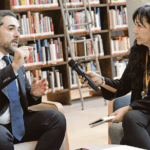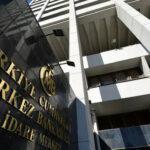We continue to closely monitor the balance of payments developments, which will have the greatest impact on the course of the economy in the short term ahead. After the elections, the Erdogan government made the well-known U-turn in monetary policy. We are watching Central Bank data to see whether the hoped-for inflow of foreign resources will follow.
– First of all, it should be emphasized that the current account deficit continues to be dangerous. The 9-month current account deficit reached USD 40.84 billion. The annual current account deficit increased by 31.3 percent with USD 51.71 billion.
– In September, there was a surplus of USD 1.9 billion this year against a current account deficit of USD 3 billion last year. The contribution of tourism to this improvement is only a 500 million dollar increase compared to last year. The main contribution comes from gold and energy. The total contribution of the reduction in the external deficit in these two items is USD 4.5 billion. In other words, nothing has changed in the main body of the economy in terms of the current account deficit.
– On the capital flows front, foreign inflows continue to be weak. It is noteworthy that this atmosphere has not changed even after the appointments of the deputy governors of the Central Bank and the large interest rate hikes, which received positive marks from Western financial centers, and that the inflow of foreign funds has decreased even further.
– There is no movement in foreign direct investments. Contrary to expectations, hot money inflows stagnated in August and September. In September, there was an outflow of USD 263 million in stocks and an inflow of USD 349 billion in deposits. Foreigners bought 1.92 billion dollars worth of bonds in September. This is the money coming from the bond issues of banks abroad. In other words, foreign funds are still not interested in the bond market and Treasury papers in the domestic market.
– In September, foreigners brought in a meager USD 2.36 billion. Of the total external resource inflow of USD 5.79 billion, USD 3.24 billion was provided by residents. A decisive contribution to this was made by the banks reducing their foreign deposits by USD 3.66 billion and receiving USD 1.63 billion in foreign loans.
– Foreign exchange inflows of unknown origin dropped to 208 million dollars. In other words, the inflow of foreign currency into the system from under the pillow, which was observed after the elections, seems to have come to an end.
In light of these data, we cannot say that there has been a significant transformation on the current account deficit front as of September. The infrastructure that creates a high current account deficit continues. On the balance of payments side, there is no positive light coming from outside; on the contrary, there is still a frightening indifference.
Balance of payments data as of September do not confirm the optimistic messages of Treasury and Finance Minister Mehmet Şimşek. As we enter the winter months, when the current account deficit will increase, a new crisis in the Middle East has been added to the already existing crisis in the rule of law at home, which has reached its peak with the deadlock created by the Court of Cassation.
While we cannot see any silver lining in the balance of payments, developments to the contrary are aggravating the problem.







